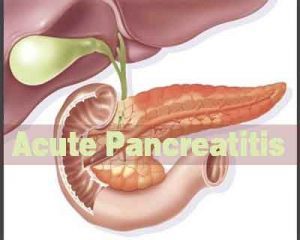- Home
- Editorial
- News
- Practice Guidelines
- Anesthesiology Guidelines
- Cancer Guidelines
- Cardiac Sciences Guidelines
- Critical Care Guidelines
- Dentistry Guidelines
- Dermatology Guidelines
- Diabetes and Endo Guidelines
- Diagnostics Guidelines
- ENT Guidelines
- Featured Practice Guidelines
- Gastroenterology Guidelines
- Geriatrics Guidelines
- Medicine Guidelines
- Nephrology Guidelines
- Neurosciences Guidelines
- Obs and Gynae Guidelines
- Ophthalmology Guidelines
- Orthopaedics Guidelines
- Paediatrics Guidelines
- Psychiatry Guidelines
- Pulmonology Guidelines
- Radiology Guidelines
- Surgery Guidelines
- Urology Guidelines
First ever Guidelines for nutritional care in Pediatric pancreatitis

A joint working group of the European Society for Pediatric Gastroenterology, Hepatology and Nutrition (ESPGHAN) and the North American Society for Pediatric Gastroenterology, Hepatology and Nutrition (NASPGHAN) has issued a consensus statement on caring for pediatric acute pancreatitis (AP), acute recurrent pancreatitis (ARP), and chronic pancreatitis (CP). The consensus appeared in the Journal of Pediatric Gastroenterology and Nutrition.
Wide variations existed in how physicians manage the nutritional aspects of children affected by AP, ARP, and CP. Better consensus for optimal management was the need of the hour.
The consensus statements on nutrition in pediatric pancreatic diseases is of great importance because it is the first-ever consensus statement on nutritional care of pediatric pancreatitis, given that there is no current standard of care and practices vary widely.
Key Recommendations include:
- Children with mild AP:
- Early in the course of an attack, start an early nutritional regimen preferably by mouth instead of nasogastric (NG) tube;
- Reserve jejunal tube feeding for children unable to tolerate oral or NG tube feeding.
- Children with Severe AP:
- Attempt nutrition early when possible, preferably by enteral nutrition over parenteral nutrition.
- Children with ARP:
- A regular diet is well-tolerated and children are likely to benefit from it.
- Children with CP:
- Perform ongoing assessments of growth and nutritional deficiencies and exocrine and endocrine insufficiencies.
Read Also: AGI’s latest Guidelines for Management of Acute Pancreatitis
It is the first authoritative recommendations on nutritional considerations in pediatric pancreatitis. The authors suggest future research should address the gaps in knowledge particularly relating to optimal nutrition for AP in children, the role of diet or dietary supplements on recurrent attacks of pancreatitis and pain episodes, monitoring practices to detect early growth and nutritional deficiencies in CP and identifying risk factors that predispose children to these deficiencies.
For more reference log on to https://insights.ovid.com/crossref?an=00005176-201807000-00023

Disclaimer: This site is primarily intended for healthcare professionals. Any content/information on this website does not replace the advice of medical and/or health professionals and should not be construed as medical/diagnostic advice/endorsement or prescription. Use of this site is subject to our terms of use, privacy policy, advertisement policy. © 2020 Minerva Medical Treatment Pvt Ltd